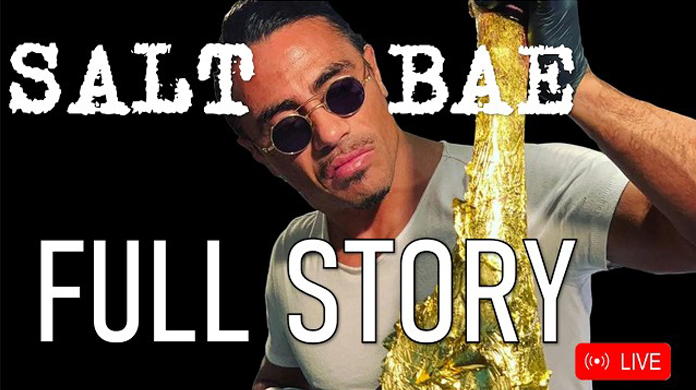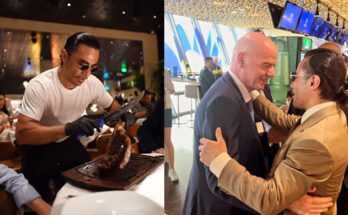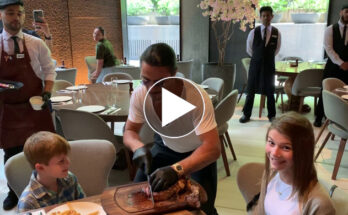In 2017, a short video transformed Turkish butcher Nusret Gökçe into a global sensation. With a theatrical flick of the wrist, he sprinkled salt down his forearm onto a sizzling steak—and the internet crowned him “Salt Bae.” His signature move, paired with dark sunglasses and a tight white tee, became a viral meme embraced by celebrities like Bruno Mars and Rihanna.
Riding the wave of fame, Salt Bae expanded his restaurant brand, Nusr-Et, into luxury hotspots around the world—Dubai, London, New York, Beverly Hills. His menus featured extravagant offerings like gold-covered tomahawk steaks priced at nearly $1,000, and meat sushi served with Parmigiano cheese. Dining at Nusr-Et wasn’t just about food—it was a spectacle.
But the glitter began to fade.
Behind the scenes, allegations surfaced. Employees at his Manhattan location accused management of withholding tips and denying proper pay for breaks and overtime. Complaints of toxic work culture and sudden firings added fuel to the fire. Meanwhile, customers began questioning whether the food lived up to the hype.
Then came the World Cup moment that changed everything. In 2022, Salt Bae stormed the pitch after Argentina’s victory, grabbing the trophy and posing for photos—despite not being part of the team. Lionel Messi’s visible discomfort went viral, and the internet turned on Salt Bae. FIFA later banned him from future pitch access.
Today, many of his restaurants struggle to fill tables. Once a symbol of viral success, Salt Bae’s story now serves as a cautionary tale: fame built on spectacle can be fleeting, and missteps—especially in the public eye—can be unforgiving.
You can read the full story on http://News18



